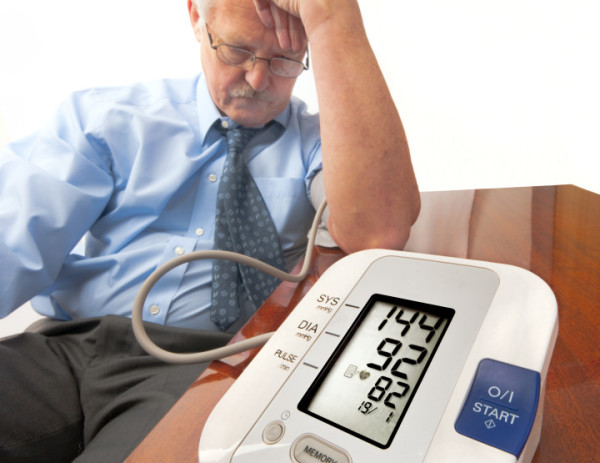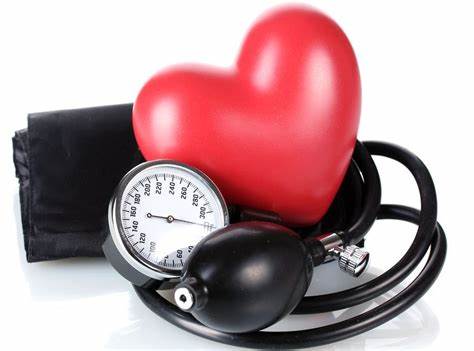Understanding high blood pressure
Sometimes high blood pressure can cause individuals to make major lifestyle changes to control their symptoms. But is high blood pressure a disability?
High blood pressure, also known as hypertension, is a common medical condition that affects millions of people worldwide. It occurs when the force of blood against the walls of the arteries is consistently too high, putting strain on the heart and blood vessels.
While high blood pressure can often be managed with lifestyle changes and medication, it is important to understand whether it can be considered a disability.
What is considered a disability?
Before delving into whether high blood pressure is considered a disability, it is crucial to understand what constitutes a disability. In general, a disability is defined as a physical or mental impairment that substantially limits one or more major life activities. These activities include but are not limited to walking, standing, sitting, lifting, learning, and working.
The link between high blood pressure and disability
High blood pressure can have serious implications on an individual’s health and overall well-being. It is a risk factor for various cardiovascular diseases, including heart attacks, strokes, and kidney problems. Additionally, it can lead to other complications such as vision loss, cognitive decline, and reduced mobility.
These potential consequences raise the question of whether high blood pressure can be considered a disability.
Legal considerations: Is high blood pressure considered a disability?
When determining whether high blood pressure is considered a disability, it is important to consider the legal framework surrounding this issue. In the United States, there are two primary laws that address disability rights. They are the Social Security Disability Insurance (SSDI) program and the Americans with Disabilities Act (ADA).
Social Security Disability Insurance (SSDI) and high blood pressure
The SSDI program is administered by the Social Security Administration (SSA) and provides financial assistance to individuals with disabilities. To qualify for SSDI benefits, an individual must meet specific criteria set by the SSA.
While high blood pressure alone may not automatically qualify as a disability, if it is accompanied by other severe impairments that prevent an individual from engaging in substantial gainful activity, it may be considered a disability under the SSDI program.
Americans with Disabilities Act (ADA) and high blood pressure
The ADA is a comprehensive civil rights law that prohibits discrimination against individuals with disabilities in various aspects of life. This includes employment, public services, and accommodations. Under the ADA, high blood pressure may be considered a disability if it substantially limits one or more major life activities.
This could include difficulties with physical exertion, stamina, or concentration, which are essential for many job functions.
Applying for disability benefits with high blood pressure
If you believe that your high blood pressure qualifies as a disability, you may consider applying for disability benefits. The process can be complex and requires careful preparation and documentation. Here are some steps to follow when applying for disability benefits with high blood pressure:
Gather medical evidence: Compile all relevant medical records, including doctor’s notes, test results, and treatment history. These documents will help establish the severity and impact of your high blood pressure.
Consult with a healthcare professional: Discuss your intention to apply for disability benefits with your healthcare provider. They can provide supporting medical opinions and documentation that strengthen your case.
Complete the application thoroughly: Please ensure that the application for disability benefits is filled out correctly and that you offer as much information as possible. This includes specific details about your high blood pressure. For example, its symptoms, and how it affects your capacity to work and your day-to-day life.
Seek legal assistance if necessary: If you encounter difficulties during the application process or your claim is denied, it may be beneficial to consult with an attorney who specializes in disability law. They can guide you through the appeals process and increase your chances of a successful claim.
Proving high blood pressure as a disability
To prove that high blood pressure qualifies as a disability, it is essential to demonstrate that it significantly limits one or more major life activities. This can be done through medical evidence and documentation. Here are some examples of evidence that can help support your claim:
Detailed medical records: Provide comprehensive medical records that outline your high blood pressure diagnosis, treatment history, and any related complications or symptoms.
Functional limitations: Document any physical or mental limitations caused by high blood pressure, such as difficulty walking long distances, standing for extended periods, or concentration problems.
Expert opinions: Obtain medical opinions from specialists or healthcare professionals who can provide an objective assessment of your condition and its impact on your daily life and ability to work.

Tips for managing symptoms and maintaining a healthy lifestyle
While navigating the disability benefits application process, it is important to focus on managing your high blood pressure and maintaining a healthy lifestyle. Here are some tips to help you effectively manage your condition:
Follow a balanced diet: Adopt a diet rich in fruits, vegetables, whole grains, lean proteins, and low-fat dairy products. Limit your intake of sodium, saturated fats, and added sugars.
Engage in regular physical activity: Incorporate moderate-intensity aerobic exercise, such as brisk walking or swimming, into your routine. Aim for at least 150 minutes of exercise per week.
Maintain a healthy weight: Achieve and maintain a healthy body weight. This will help to reduce the strain on your heart and blood vessels. Consult with a healthcare professional to determine your ideal weight range.
Limit alcohol consumption: If you drink alcohol, do so in moderation. Men should limit their intake to two drinks per day, while women should limit it to one drink per day.
Manage stress: Practice stress management techniques such as deep breathing exercises, meditation, or engaging in hobbies that you enjoy. High stress levels can contribute to elevated blood pressure.
Other resources and support for individuals with high blood pressure
Beyond disability benefits, there are numerous resources and support available for individuals with high blood pressure. These include:
Support groups: Joining support groups or online communities can provide a platform for sharing experiences, gaining knowledge, and finding emotional support from others who are managing high blood pressure.
Educational materials: Various organizations and healthcare providers offer educational materials, brochures, and online resources that provide valuable information on managing high blood pressure and its related complications.
Lifestyle modification programs: Consider enrolling in lifestyle modification programs that focus on healthy eating, exercise, stress reduction, and other lifestyle changes that can help control blood pressure.
Healthcare professionals: Regularly consult with your healthcare provider or a specialist to monitor your blood pressure. Additionally, you should.adjust medications when recommended and receive guidance on managing your condition effectively.
Conclusion: Understanding your rights and options
In conclusion, high blood pressure can have significant implications on an individual’s health and quality of life. While it may not be automatically considered a disability, it can qualify as a disability under certain circumstances, as recognized by the Social Security Disability Insurance program and the Americans with Disabilities Act.
If you believe your high blood pressure qualifies as a disability, it is crucial to gather the necessary medical evidence and documentation to support your claim. Additionally, focusing on managing your high blood pressure and maintaining a healthy lifestyle is essential for your overall well-being.
Remember to seek support from healthcare professionals and take advantage of available resources to effectively manage your condition.

